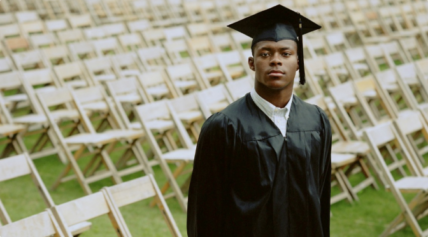In recent years, harrowing statistics regarding the aptitude of black students in America have been run through the media with alarming frequency. In 2010, the New York Times reported that only 12 percent of black fourth-grade boys were proficient in reading, compared to 38 percent of white boys. Those figures came from a study produced by The Council of the Great City Schools, a group that advocates for higher standards in the public schools of major cities nationwide.
When such figures are put forth, the performance of black students is often attributed to social conditions and biased testing, but few questions are asked about why black students specifically underperform across the board, and even fewer solutions are put in place.
Dr. Ivory A. Toldson questions not only the tests and socio-economic positions that face many of America’s black students, but also the criteria by which black students are judged. Toldson gives the example of a typical African-American fourth grader, confronted by a standardized test, which does not affect his regular schooling. A tenured professor at Howard University, Toldson offers his opinion of the black education experience in an editorial on The Root.
“To test his level of reading comprehension, he is given a two-page passage about bees. Although he can read every word, the passage is extremely boring to him. Because the test is timed, he has to use a particular style of reading that feels contrived,” Toldson writes via The Root. “At the end, he has to answer a series of questions, which have many plausible answers. In general, attributes like imagination and creativity work against him because the test requires him to be literal and deductive.”
Using his own background as a likely sufferer of ADD who struggled through standard schooling, along with the scenarios seen across the country in which black students with straight A’s are being held back due to reading proficiency tests, Toldson makes a case that black students are being measured by invalid standards.
While he recognizes the poor scores as an issue within the black community, he does not link them to an absolute literary crisis.
“We cannot deny the literacy problems in the black community; however, I’m convinced that the problem lies less with children and more with the lack of understanding among adults of multiple literacies,” he writes.
Toldson charges his readers to consider more than just the results of standardized tests. Certainly the scores should not be completely disregarded, but how effective are they in measuring the progress of black students and their aptitude for learning. Should black students be forced to fit the mold put forth by a system that seemingly reinforces black inferiority, he asks, or should they be encouraged to follow their own paths for growth?


